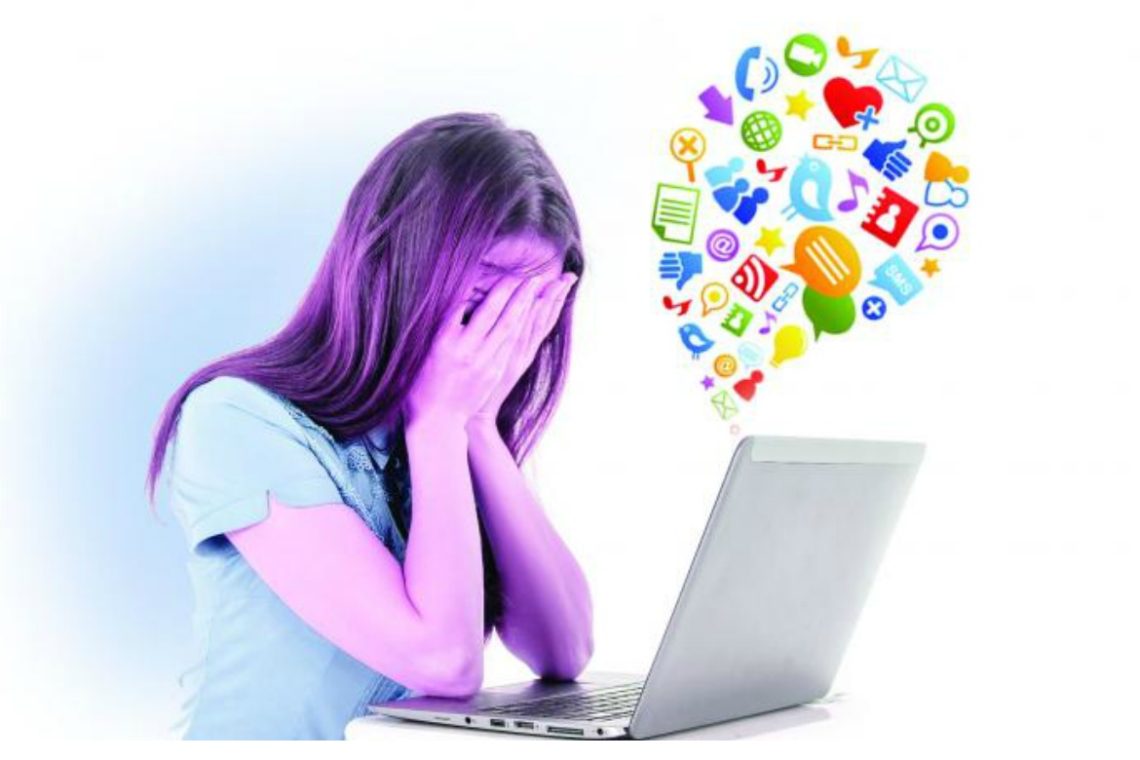Social media is a huge part of contemporary life. Most young adults live their lives on social media platforms. In fact, a study from the NCBI website shows that there were at least 3.484 billion social media users as per 2019 data, and the number is growing by 9% every year. The question remains, are the benefits of this communication avenue worth the potential risks?
Although there is no doubt that social media can promote positive mental well-being and provide opportunities for self-expression and connection, it is also clear that excessive use of social media can negatively affect mental health.
In this article, we explore social media’s impact on our mental health by examining its positive and negative sides and some specific psychological effects of using these technologies in excess.
Table of Contents
The Positive Side of Social Media
While social media has many negative aspects, it can also be a powerful tool that can help you in many ways. The benefits of social media include:
- Helping you stay connected with friends and family who live far away
- Keeping you informed about current events around the world. Per a Pew Research article, at least 13% of US citizens refer to Instagram for news.
- Getting more done because it’s so easy to find information online or get tasks done with tools like email and calendars
- Building your professional network through LinkedIn, Twitter, and other platforms where people share their expertise. At the beginning of 2023, LinkedIn had an audience reach of 200 million users in the United States.
Social media has become an integrated part of our lives, and some say they would instead give up food than access their favorite sites. But while staying connected may seem like a good thing on its face, too much time spent on these platforms could negatively affect mental health by making us feel isolated from real-life interactions with others around us.
The Dark Side of Social Media
Social media can be a double-edged sword. While it can be used to increase your mental health, it also has the potential to negatively affect you if you don’t use it in the right way.
There are many ways that social media use can cause harm for people with mental health issues:
- It may make them feel more isolated from others and more alone than they already do. Social media tends to make us believe that everyone else is living an amazing life while we’re stuck in our current situation, which can lead to feelings of depression and even suicidal ideation. For instance, a teenager reportedly hung himself in the garage after being cyberbullied in the US.
- It makes us compare ourselves with others’ pictures or posts about their lives, which often makes us feel inadequate or inferior when we look at other people’s seemingly perfect lives compared with our imperfect ones, which can seriously affect self-esteem.
The comparisons made over people’s social life are also causing many problems for millennials. As per TorHoerman Law, social comparison has become rampant among Instagram users. Moreover, status-seeking content seems to fare prominently on the platform, which leads to depressive symptoms.
Psychological Effects of Social Media Use
Social media can be a great way to connect with people you know, but it can also be a way to connect with people you don’t want to connect with. Sometimes, social media can make it easier for someone who’s not your friend or an acquaintance to contact you.
Social media also allows people to interact with strangers. Sometimes, these interactions aren’t positive. If someone posts something negative on their profile page or in one of their posts, anyone who views that post will also see it.
Mental Health Conditions Associated with Social Media
Social media has been linked to several mental health conditions, including depression and loneliness. This is especially true with Instagram, as social comparisons are easier with the images uploaded on the platform.
This has given rise to several mental health problems for Instagram users, leading to people filing lawsuits for the same. After multiple studies establishing the connection between social media and mental health, many individuals have filed a lawsuit against Instagram.
If you are a victim of mental health problems because of using this platform, you can file an Instagram lawsuit. Simply find an attorney who can represent you in court and prove that using the platform caused mental health problems.
Listed below are some of the negative impacts of social media platforms on users.
Depression and Loneliness
Social media can be used to connect with friends and family. If you feel lonely, social media can help you feel more connected to those who care about you. Social media also connects people who share similar interests or live far away from each other, which could help reduce feelings of loneliness.
In fact, there is some evidence that social media use may help prevent depression and loneliness among young adults who self-identify as “loners.”
Anxiety Disorders and Panic Attacks
Social media can be a source of stress and anxiety for many people, especially if they’re trying to keep up with the 24/7 nature of social media. Social media can also trigger anxiety disorders, so if you’re dealing with an anxiety disorder or panic attacks, it’s essential to stay away from using social media as much as possible.
If you’re already struggling with an anxiety disorder or panic attacks, reducing your use of Facebook and Twitter might make sense because they may only worsen your condition.
Eating Disorders and Disordered Eating
Social media is often a trigger for eating disorders and disordered eating. People who are struggling with anorexia, bulimia, or binge-eating disorder may be more likely to turn to social media sites for validation of their body image issues.
For example, Instagram users can search hashtags like #thinspo or #fitspo. These hashtags often yield images of fit bodies that appear very different from the user’s and can make them feel inadequate or depressed about their appearance.
Social media can also promote healthy eating habits and body acceptance, especially among young people who may not have access to quality nutrition education at school or home. The National Eating Disorders Association provides educational resources on its website, such as tips on how parents can talk about food with their children without promoting disordered behaviors.
Strategies for Maintaining Healthy Social Media Use
Here are some tips to help you lead a healthy social media life.
- Don’t compare yourself to others. Social media can be a great way to learn about new things, but it’s also easy to get caught up in comparing your life with that of others. This can lead to self-doubt and low self-esteem, which is bad for your mental health. Instead, focus on what makes each person unique and special and remember that everyone has different experiences.
- Use social media in moderation. It’s important not to spend too much time on social media platforms because they may not always be healthy places. Limiting your time spent online if needed. This will help balance things between real life and virtual interaction.
- Don’t use social media as an escape from problems in real life.
- Social media should never replace human interaction or face-to-face communication when it comes down to it. If something needs addressing directly, then address it rather than hiding behind screens and keyboards where no one else knows what’s going wrong until much later.
Promoting Positive Mental Well-being on Social Media Platforms
When looking for a social media platform, look for one encouraging you to connect with positive and supportive people. While it may be tempting to follow celebrities or influencers, try to find people who share your interests and values and who will support you in your goals rather than using social media as an opportunity for self-promotion.
In addition to finding supportive friends on social media platforms like Facebook or Instagram, there are many online communities where users gather around common interests such as fitness or parenting. These platforms can help foster connections among members of similar groups by allowing them to share their experiences without judgment from outsiders.
Future Directions and Implications
Social media has become integral to our lives, but it’s essential to understand its impact on mental health. There are many reasons why people use social media, including sharing experiences with friends and family members.
However, some people may use these platforms to compare themselves with others or seek validation from strangers who don’t know them personally.
Social media users should be aware that they aren’t always getting an accurate picture of other people’s lives through their posts on Facebook or Instagram. Just because someone looks happy in their photos doesn’t mean they are happy.
In fact, research shows that being exposed repeatedly to positive images makes us feel worse about ourselves because we’re comparing ourselves unfavorably against those unrealistic standards. In addition, some social media sites allow users’ posts about depression and other mental illnesses to remain visible even after removing them from their accounts. Others who don’t know how serious these statements represent may see this content.
Conclusion
We hope that you have found this blog post informative and thought-provoking. We believe that social media is an essential part of our lives, but we also think it’s important to be aware of the effects it can have on mental health. If you or someone close to you feels anxious or depressed after using social media sites like Facebook or Twitter, please seek help immediately by calling 911.




No Comments